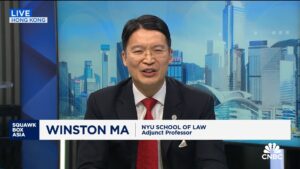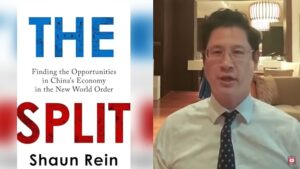
TikTok, Temu, and Shein are better in branding than most Western brands, argues branding expert Björn Ognibeni on his weblog. The result of this miscalculation is evident in performance differences: While many Asian platforms boast strong user retention and high time spent on site, Western providers are struggling with declining conversion rates and rising acquisition costs.
Björn Ognibeni:
Measurability is complex (how can trust building be quantified?), ROI seems uncertain, and impatience for quarterly results leads to short-term tactics. But when comparing the branding strategies of Western and Chinese companies, three areas of missed opportunities become obvious:
Untapped Discovery Potential: Western e-commerce is ideal for when you know exactly what you’re looking for. But what about those times when people want to browse, find inspiration and discover something new? Chinese platforms show us: Discovery-driven shopping can complement search well and offer a significant growth opportunity, but only if it is done right and does not annoy customers.
The Social Commerce Misunderstanding: Western companies often misunderstand ‘social commerce’, viewing it merely as a way of buying reach on Instagram or TikTok, when in fact it is so much more than that. In Asia, where social thinking has always been more ingrained in the culture, companies have realized that it’s about building genuine relationships. This approach might also appeal to Western customers because the desire for social connection is universal, not just cultural.
Enshittification of the UX: The creeping deterioration of the user experience due to excessive advertising is rendering Western platforms increasingly unusable. Search results are flooded with sponsored products and every click leads to more ads. And to customer frustration.
The result of this miscalculation is evident in performance differences: While many Asian platforms boast strong user retention and high time spent on site, Western providers are struggling with declining conversion rates and rising acquisition costs.
More at Björn Ognibeni’s weblog.
Björn Ognibeni is a speaker at the China Speakers Bureau. Do you need him at your meeting or conference? Do get in touch or fill in our speakers’ request form.
Are you looking for more branding experts at the China Speakers Bureau? Do check out this list.









